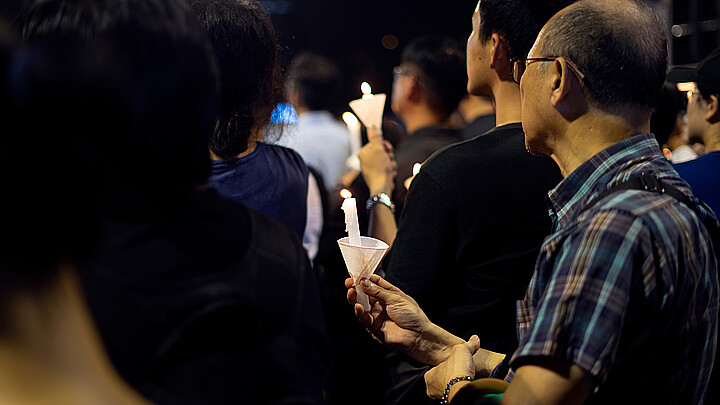Human Rights
Chinese govt. must not detain peaceful protesters, says human rights group
“Instead of penalizing the people, the government should listen to their calls. Authorities must let people express their thoughts freely and protest peacefully without fear of retaliation.”
November 28, 2022 3:12pm
Updated: November 28, 2022 4:22pm
Amnesty International called on the Chinese government to not arrest peaceful protesters taking part in the country’s unprecedented demonstrations against harsh COVID-19 lockdowns.
In a statement on Sunday, the human rights organization praised the citizens rising up in support of a deadly building fire in Urumqi, the capital of far western Xinjiang province and defended their right to “creative,” nonviolent protest.
“The tragedy of the Urumqi fire has inspired remarkable bravery across China. Peaceful protesters are holding blank pieces of paper, chanting slogans, and engaging in many forms of creative dissent, said Amnesty International’s Deputy Regional Director Hana Young. “It is virtually impossible for people in China to protest peacefully without facing harassment and prosecution. Authorities have shown zero tolerance to opposition especially in the last 10 years under President Xi, but this has not stopped the protests.”
“Instead of penalizing the people, the government should listen to their calls. Authorities must let people express their thoughts freely and protest peacefully without fear of retaliation.”
The Urumqi fire went viral on Chinese social media because netizens believe the 10 deaths were due, in part, to a partial lockdown of the building over COVID-19 concerns.
Local authorities have disputed this claim, but it did not stop protests from breaking out in Urumqi. Since Nov. 25, videos on social media have shown demonstrations breaking out across universities and cities through China, including in Beijing, Guangdong, Shanghai and Wuhan, according to Amnesty International.
Demonstrators have called for less restrictive COVID regulations and more freedom from state censorship.
"What we object to is these restrictions on people's rights in the name of virus prevention, and the restrictions on individual freedom and people's livelihoods," Jason Sun, a Shanghai college student, told Reuters.
Videos have also shown some demonstrators being detailed, including at least one woman in Urumqi for “spreading rumors.”
“Unfortunately, China’s playbook is all too predictable,” Young said in Amnesty International’s statement. “Censorship and surveillance will continue, and we will most likely see police use of force and mass arrests of protesters in the coming hours and days. Long prison sentences against peaceful protesters are also to be expected.”








